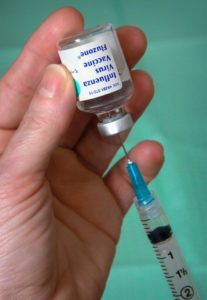 On March 2nd in 2015, Brazil first notified the World Health Organization (WHO) with reports of an illness characterized by skin rash in its northeastern states. From February to April, about 7,000 cases of illness with skin rash were reported in these states. Since the cases were mild with no reported deaths, Zika was not a suspect of causing these illnesses. The cause was in fact Zika. It wasn’t until February of this year that WHO declared that Zika infection was associated with microcephaly and other neurological disorders. Since March of this year, researchers have been scrambling to develop a Zika vaccine to avoid the delayed response of a vaccine that occurred with the Ebola epidemic. Vaccine trials for Ebola began too late, as soon as the the rate of infection started to drop.
On March 2nd in 2015, Brazil first notified the World Health Organization (WHO) with reports of an illness characterized by skin rash in its northeastern states. From February to April, about 7,000 cases of illness with skin rash were reported in these states. Since the cases were mild with no reported deaths, Zika was not a suspect of causing these illnesses. The cause was in fact Zika. It wasn’t until February of this year that WHO declared that Zika infection was associated with microcephaly and other neurological disorders. Since March of this year, researchers have been scrambling to develop a Zika vaccine to avoid the delayed response of a vaccine that occurred with the Ebola epidemic. Vaccine trials for Ebola began too late, as soon as the the rate of infection started to drop.
Agencies Involved in Vaccine
Since March, 18 agencies and companies around the world raced to develop Zika vaccines, including inactive vaccines that could be safely given to pregnant women. Alexander Precioso, the director of the clinical trials and pharmacovigilance division at Butantan Institute in Sao Paulo, Brazil said a “long term vaccine made from a weakened Zika virus might be the most effective because it mimics the natural course of infection more closely than other types.” The US National Institutes of Health are developing this type of DNA-based vaccine that would induce an immune response targeting both Zika and dengue.
Advancing the Virus Research
With no vaccine still in sight, the race is on. Just this past Monday, the Department of Health and Human Services (HHS) decided to expedite the process of developing a Zika vaccine and provided $1.1 billion in funding to combat the Zika virus. The Biomedical Advanced Research and Development Authority (BARDA) that oversees development for vaccine research will provide $21 million over the next 30 months to the Center for innovation in Advanced Development Manufacturing (CIADM) that that will present a variety of studies to move rapidly through the early stages of vaccine development. After these studies are done, CIADM will submit a request to the Food & Drug Association to start clinical trials.
BARDA and HHS will give the task of manufacturing the vaccine to Emergent Biosolutions, a drug developer located in Gaithersburg, Maryland. Emergent expects to have a vaccine candidate ready by the end of this year for clinical trials. From there, Emergent will move production of the vaccine from its Gaithersburg facility to its bigger Baltimore manufacturing plant and start producing the vaccine for patients. Emergent is also known for manufacturing the anthrax vaccine and other cancer related drugs.
